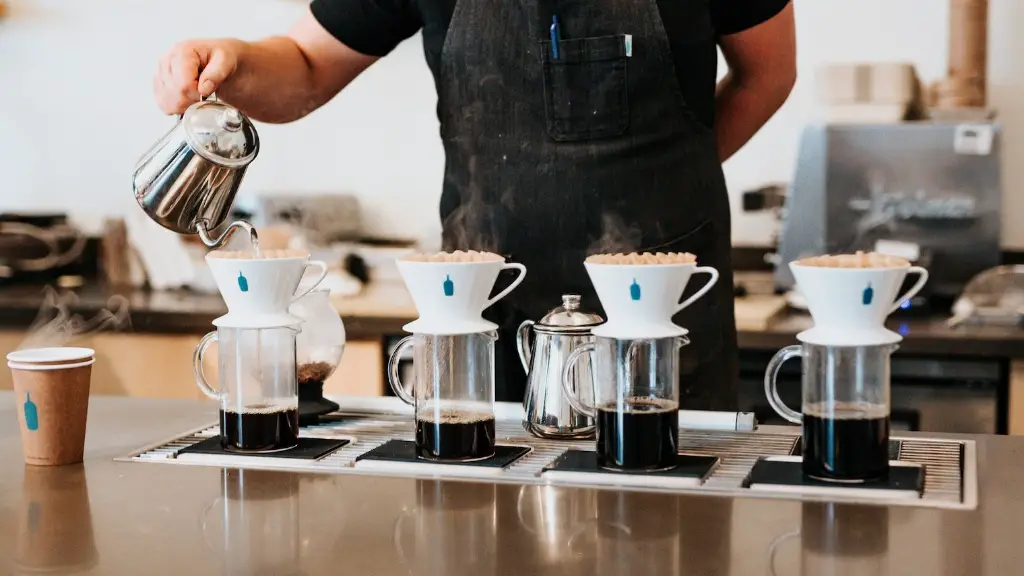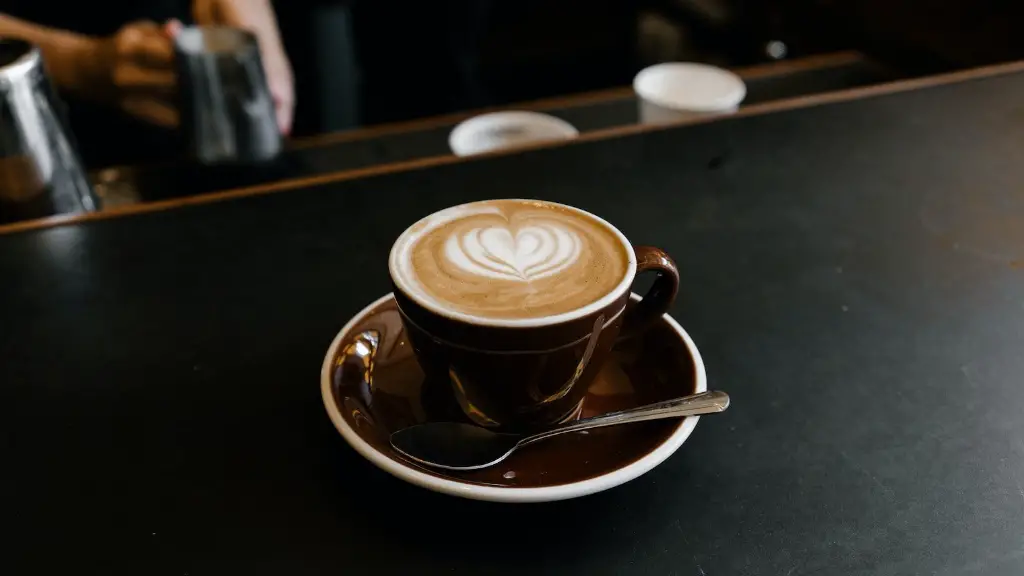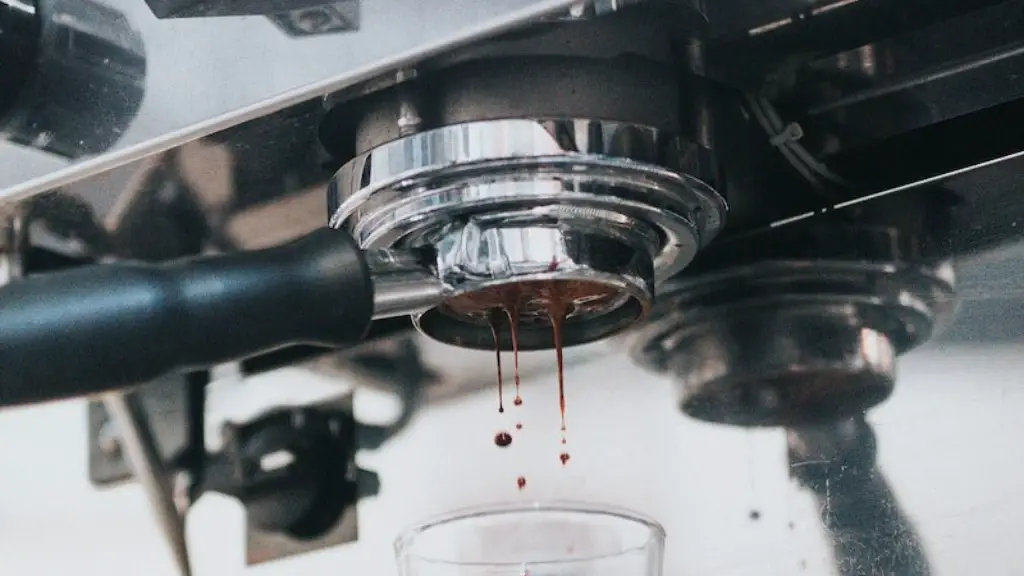Drinking coffee at night is an increasingly popular habit among individuals of all ages. Coffee is an established way to get an energy boost, but that comes with the potential risk of drinking too much caffeine. While many people view drinking caffeine late at night as a way to stay awake and productive, there are several health risks associated with it. Read on to learn more about the potential consequences of drinking coffee in the evening.
Caffeine is a stimulant in the same family of drugs as cocaine and amphetamine. When ingested, it interacts with certain receptors in the brain to increase alertness and focus, as well as reduce stress. Caffeine also contributes to a feeling of energy and alertness, but only when it is consumed at the right time of day.
The problem with drinking coffee at night is that it can disrupt both the quality and the duration of sleep. Caffeine has a half-life of about 5 to 6 hours, so if it is consumed later in the day, it can still be present in the body late at night, when your body should be winding down and preparing for sleep. This can lead to difficulty in both falling asleep and remaining asleep through the night.
Caffeine also affects your body’s production of melatonin, a hormone produced by the hypothalamus in order to help regulate sleep and wake cycles. High levels of melatonin help induce sleep, while low levels can lead to difficulty falling asleep, staying asleep, and feeling fully rested during the day. Drinking coffee in the evening can interfere with the body’s production of this essential hormone, leading to overall exhaustion.
Drinking coffee on an empty stomach can also have potential health risks. Since caffeine absorbs into the bloodstream quickly, it has the potential to increase blood sugar levels when consumed on an empty stomach. Additionally, caffeine can increase the production of stomach acid, leading to feelings of nausea or heartburn.
Not surprisingly, health experts recommend avoiding caffeine late in the evening. The Mayo Clinic recommends limiting caffeine consumption to no later than 2 to 3 hours prior to bedtime. Lastly, be aware that caffeine can interact with certain medications, such as blood pressure medications, causing an increase in the body’s response. Therefore, it is important to talk to your doctor before adding coffee to your nighttime routine.
Alternatives to Drinking Coffee at Night
Given the potential risks of consuming caffeine late at night, some individuals have chosen to replace coffee with caffeine-free alternatives. Water is a great choice for keeping hydrated, and has the added bonus of being free from any stimulant effects. Additionally, warm herbal teas can be a great way to relax after a long day, and many herbal options can be higher in antioxidants and other beneficial compounds than coffee. Herbal teas come in a variety of flavors, making them a versatile and creative way to stay alert and energized during the day – without disrupting sleep at night.
Another potential replacement for a late-night caffeine fix is kombucha. This fermented tea drink is made with black or green tea, and has a slightly tart flavor. It also contains small amounts of caffeine and a range of healthy probiotics and antioxidants, which can help boost energy during the day. Additionally, kombucha helps promote good digestion, so it can make a healthy bedtime routine even healthier.
Finally, some individuals may choose to limit the total amount of caffeine they consume during the day, or to switch to decaffeinated options in the evening. Decaffeinated coffees can still provide the flavor and pleasure of coffee, without the side effects of too much caffeine. This gives individuals the flexibility to still enjoy coffee late at night, without the potential for disrupting sleep.
The Benefits of Drinking Coffee at Night
There are some potential benefits to drinking coffee at night. For example, occasional late-night coffee can help individuals with mild fatigue stay awake and alert. In addition, caffeine can reduce feelings of anxiety, making it a great option for individuals who are feeling overwhelmed and stressed after a long day.
Studies have also shown that caffeine can increase physical performance and endurance, making it helpful for individuals looking to push their workouts a bit further. Additionally, researchers have suggested that caffeine may help to improve memory and recall. For these reasons, individuals may find that having a cup of coffee late at night can help them stay alert, focused, and productive.
The Risks Associated with Drinking Coffee at Night
Although there are potential benefits to drinking coffee at night, there are also certain risks to be aware of. For example, too much caffeine can reduce blood flow to the brain, leading to symptoms such as headache and fatigue. Scientists have also found that too much caffeine, especially after dinner, can increase the risk of heartburn and acid reflux.
Drinking caffeine late at night can also have an effect on anxiety levels. Since caffeine is a central nervous system stimulant, it can contribute to feelings of anxiety and jitteriness if it is consumed too close to bedtime.
Finally, drinking coffee late at night can reduce cortisol levels, the hormone responsible for controlling adrenal function. Low levels of cortisol can lead to symptoms such as fatigue, difficulty concentrating, and headaches. To avoid these potential risks, it is best to avoid drinking coffee after dinner.
Drinking Coffee at Night: Final Thoughts
The bottom line is that drinking coffee at night may not be the best idea. While occasional use may be okay, drinking too much or consuming it too close to bedtime can lead to poor sleep and other potential health risks. That being said, it is best to limit the amount of caffeine consumed in a day, or to switch to decaffeinated options later in the evening. Additionally, individuals may choose to explore caffeine-free options like water, herbal teas, or kombucha.
When it comes to drinking coffee at night, the key is moderation. Too much caffeine can increase the risk of fatigue, heartburn, and other potential risks. Therefore, it is best to limit intake and make sure to consume it at least 2 to 3 hours before bedtime. With the right strategy, individuals can still enjoy the taste and benefits of coffee while avoiding any potential negative effects.
Coffee in the Morning
For those who love their coffee but want to avoid drinking it late at night, the best option is to drink it in the morning. Not only does coffee provide a physical and mental boost when consumed in the morning, but it has also been associated with numerous health benefits. Studies have shown that drinking coffee can reduce inflammation and protect against certain diseases, as well as reduce stress levels.
The fact that coffee is also loaded with antioxidants means that it can help individuals feel energized and alert during the day. As such, medical experts advise that individuals drink no more than 3 to 4 cups of coffee per day. This can help ensure that individuals get the benefits of morning coffee without having to worry about the negative effects of drinking it too late in the day.
The Best Coffee for Evening Consumption
For those who insist on having a cup of coffee in the evening, there are certain types of coffee that are better suited to late-night consumption. For example, decaffeinated coffee is an excellent choice, as it provides all of the flavor and enjoyment of coffee without the potential negative effects of caffeine. Additionally, some individuals may benefit from switching to a lighter roast, as these typically contain less caffeine, and are thus better suited to late-night drinking.
It is also important to be mindful of other ingredients added to the coffee. Sugar and milk can add calories and fat, and may cause feelings of sluggishness and sluggishness later in the day. It can also add to acidity, which can cause problems for individuals prone to heartburn.
Alternatives to Coffee for Late-Night Consumption
Finally, for those looking for late-night energy boost without caffeine, there are plenty of coffee alternatives. Foods like fish, nuts, and eggs are high in tryptophan, an amino acid that helps create serotonin and melatonin in the brain, both of which help regulate sleep cycles.
Additionally, some individuals may find that energy drinks or supplements can help stimulate the brain without the side effects of caffeine. Many of these drinks and supplements may contain natural ingredients like guarana or ginseng, which can help promote alertness without the potential risks associated with too much caffeine.
As always, it is important to talk to your doctor or healthcare professional before adding any supplements or energy drinks to your daily routine. This can help to ensure that the ingredients are safe, and that they won’t adversely interact with any medications you may be taking.





